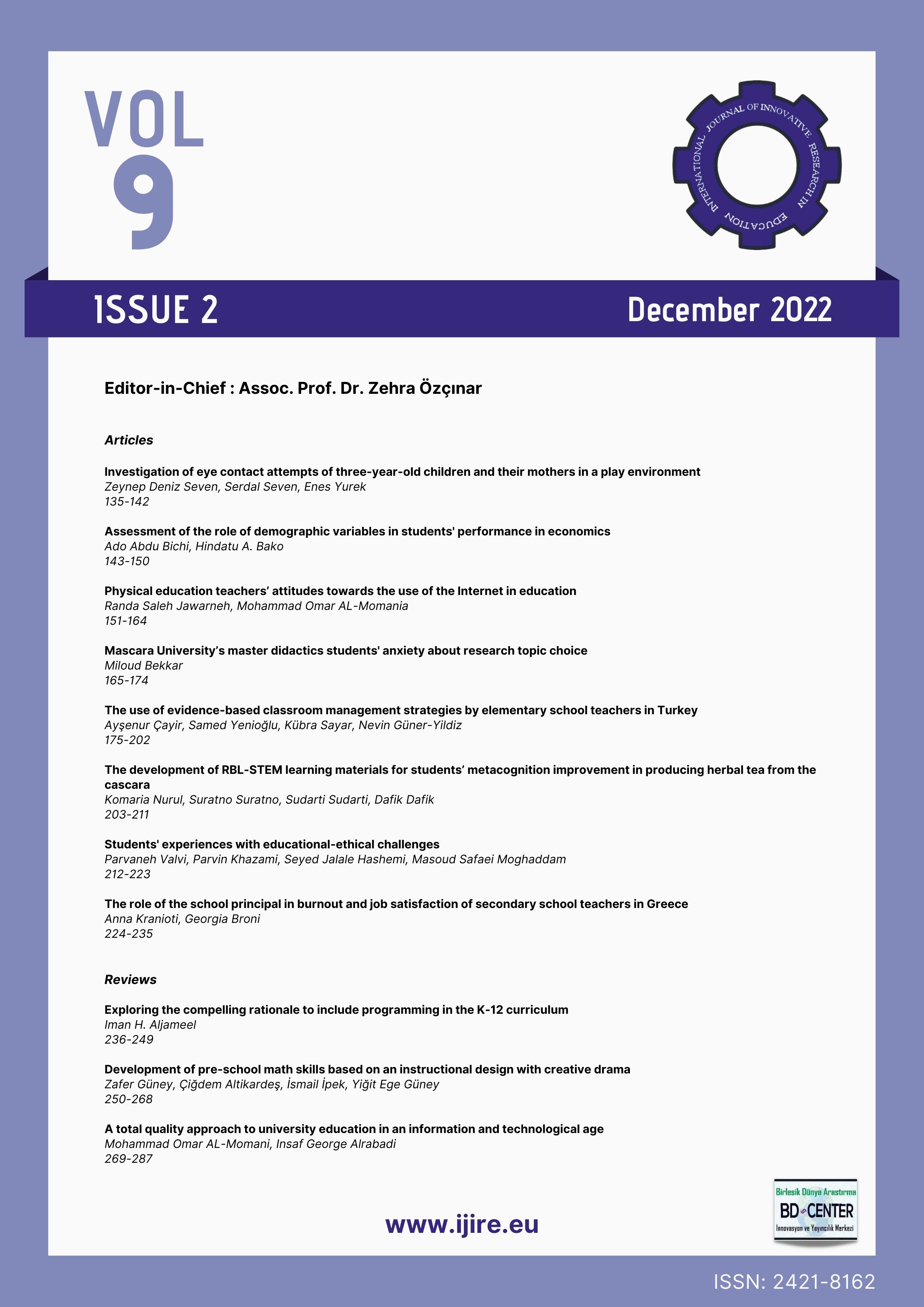Students' experiences with educational-ethical challenges
Main Article Content
Abstract
The purpose of this research is to investigate students' experience with educational-moral challenges. The research method is qualitative and phenomenological. The statistical population of this research included all female students of the second secondary level. The sample was selected purposefully and according to the available samples. Data saturation in the field of the educational-moral challenge of identity confusion was done after 14 interviews, communication challenge after 15 interviews, and existential anxiety challenge after 17 interviews. The three-step Ricoeur's method was used to analyze the interview data. Findings include 5 main themes and 16 sub-themes. The research shows that the educational-moral challenges of students are rooted in their untested assumptions and false beliefs. The analysis of the students' experience provides a clear picture of their perceptions about each of the challenges, and the discovery and interpretation of their speech shows that each experience has depth and breadth, and from each experience, we can reach the hidden things of the word.
Keywords: Challenge; education; ethics; morals; phenomenology.
Downloads
Article Details

This work is licensed under a Creative Commons Attribution 4.0 International License.
The International Journal of Innovative Research in Education is an Open Access Journal. All articles can be downloaded free of charge. Articles published in the Journal are Open-Access articles distributed under CC-BY license [Attribution 4.0 International (CC BY 4.0)].
Birlesik Dunya Yenilik Arastirma ve Yayincilik Merkezi (BD-Center) is a gold open access publisher. At the point of publication, all articles from our portfolio of journals are immediately and permanently accessible online free of charge. BD-Center articles are published under the CC-BY license [Attribution 4.0 International (CC BY 4.0)], which permits unrestricted use, distribution, and reproduction in any medium, provided the original authors and the source are credited.
